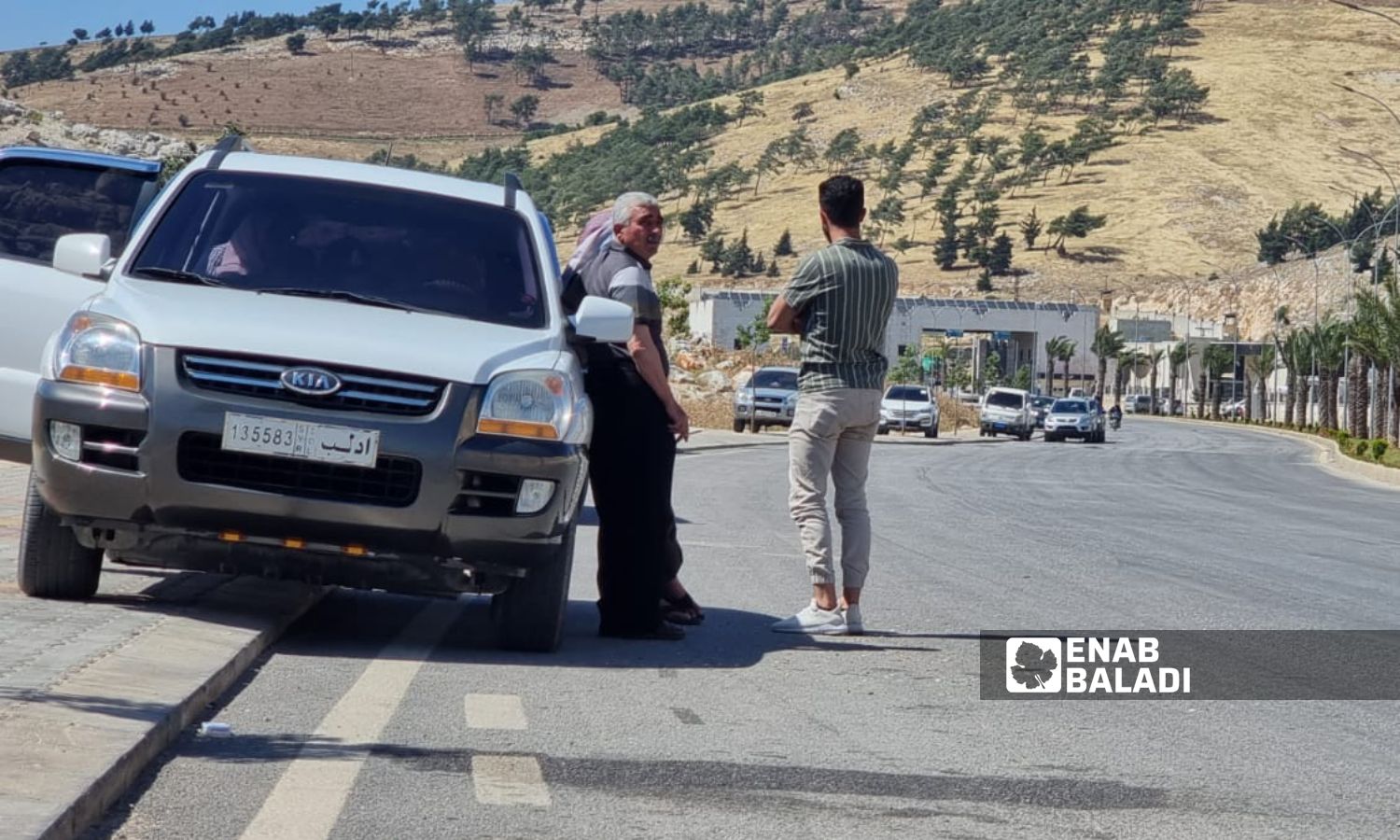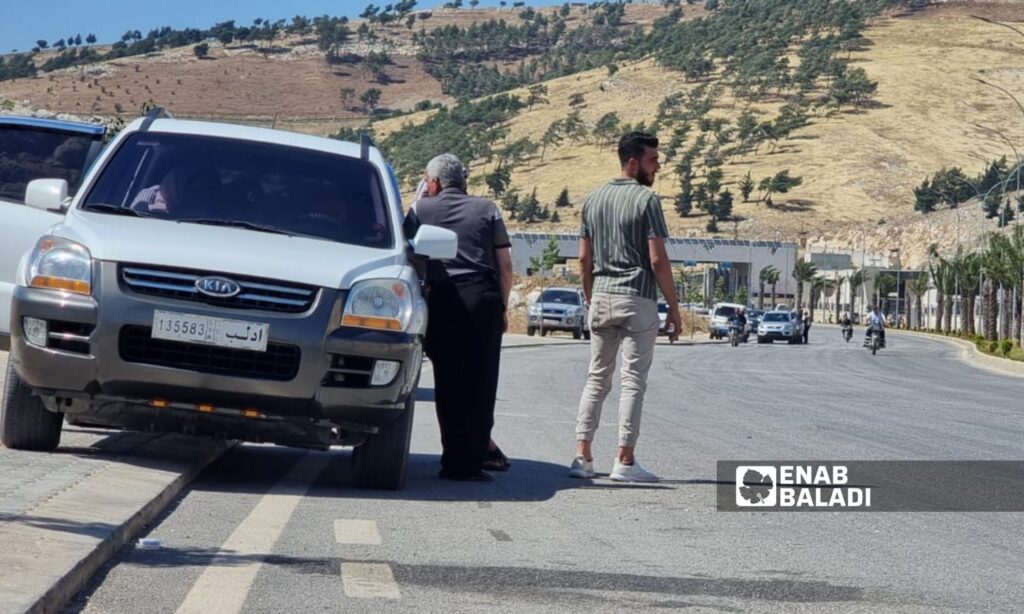People accompanying travelers are forced to wait for long hours in open spaces under the sun near the Bab al-Hawa crossing in Idlib or on nearby main roads due to the lack of waiting halls.
Complaints are common about this situation, especially since the Bab al-Hawa crossing is considered the only transport lifeline for residents in the Idlib area. It is used to travel for medical treatment in Turkey, perform the Hajj pilgrimage, or carry out business activities. On the Turkish side, it is connected to the Cilvegözü crossing in Hatay province.
Earlier this June, Mahmoud Shaqifi had to stand and wait for more than three hours under the sun near the Bab al-Hawa road to receive his cousin coming from Germany because there was no waiting hall for arrivals to northern Syria.
Shaqifi told Enab Baladi that having a hall or place to protect them from the summer heat is one of the simplest rights for travelers or those receiving them, especially since the waiting process takes hours.
Hani Zakour, another young man from Idlib city, expressed his dissatisfaction with the lack of reception and farewell halls for travelers at the Bab al-Hawa crossing, considering the long wait in the open exhausting.
Enab Baladi observed dozens of people near the road waiting for or saying goodbye to their loved ones near the Bab al-Hawa crossing, all sharing the same complaints.

Dozens of people wait for their loved ones in the open near the Bab al-Hawa border crossing with Turkey – June 4, 2024 (Enab Baladi/Anas al-Khouli)
“Beyond the scope of the crossing’s duties”
Mazen Alloush, the media office director at Bab al-Hawa crossing, told Enab Baladi that it is the duty of the crossing to serve the traveling residents within the crossing limits, but reception is beyond the crossing’s scope of work and cannot be regulated.
Alloush mentioned that the crossing zone begins from the al-Dire’ roundabout on the Bab al-Hawa crossing highway to the end of the crossing. This area is for servicing traffic movement on the crossing, whether for travelers, commercial activities, or patient transportation, noting that it is a vital artery that should remain free of obstructions.
According to Alloush, the large number of citizens coming to receive their loved ones hinders movement and sometimes leads to road closures. He pointed out the large number of cars that gather to receive a traveler, especially in the case of funeral arrivals.
Alloush added that the crossing administration works around the clock to serve traveling citizens and has equipped modern halls with all the services that enhance travelers’ comfort, including bathrooms, mosques, air conditioning, beverages, and free transportation.
He noted that about a year ago, the crossing administration built two new halls within the crossing limits: one for departures and the other for arrivals. The arrivals hall is located at the Turkish gate of the crossing, where passports are stamped, and documents are checked, allowing for immediate entry to Syrian territory without the need to stop at other stations.
The crossing is 33 kilometers from Idlib city and administratively falls under Idlib province. It is the largest border gate with Turkey and historically lies on the ancient Roman road “Silk Road” between Antioch (Antakya) and Aleppo.
The crossing administration consists of four main sections: immigration and passports, customs office, security and safety, and technical supervision, along with about 12 offices.
Dozens of people wait for their loved ones in the open near the Bab al-Hawa border crossing with Turkey – June 4, 2024 (Enab Baladi/Anas al-Khouli)











